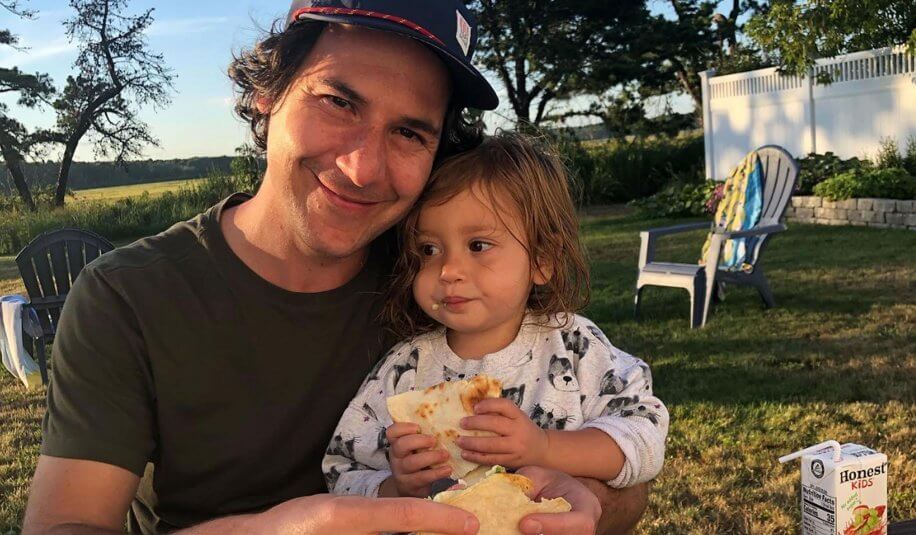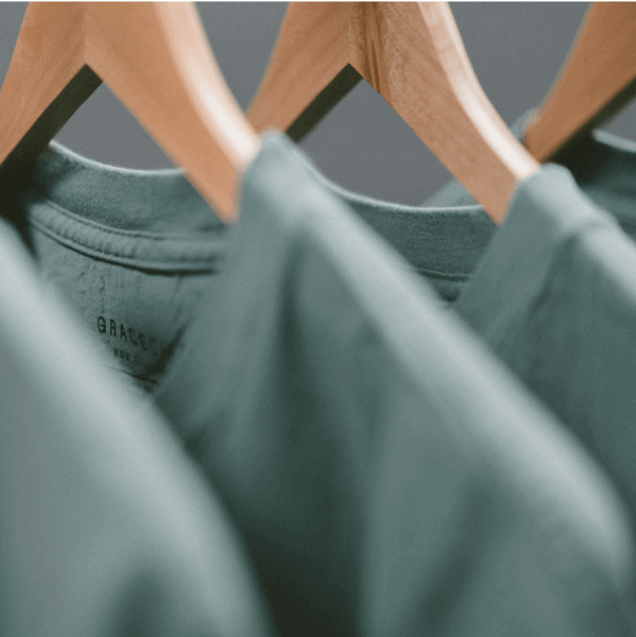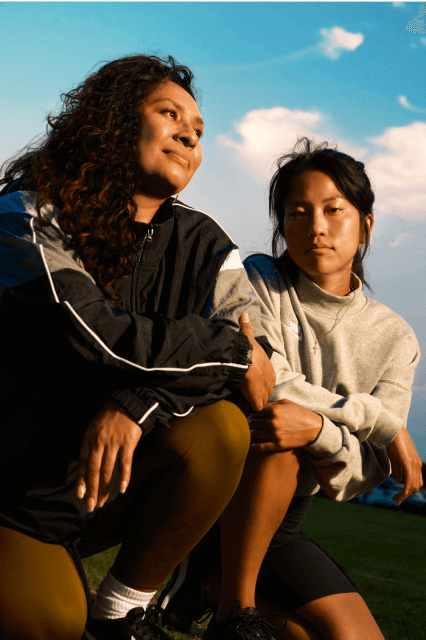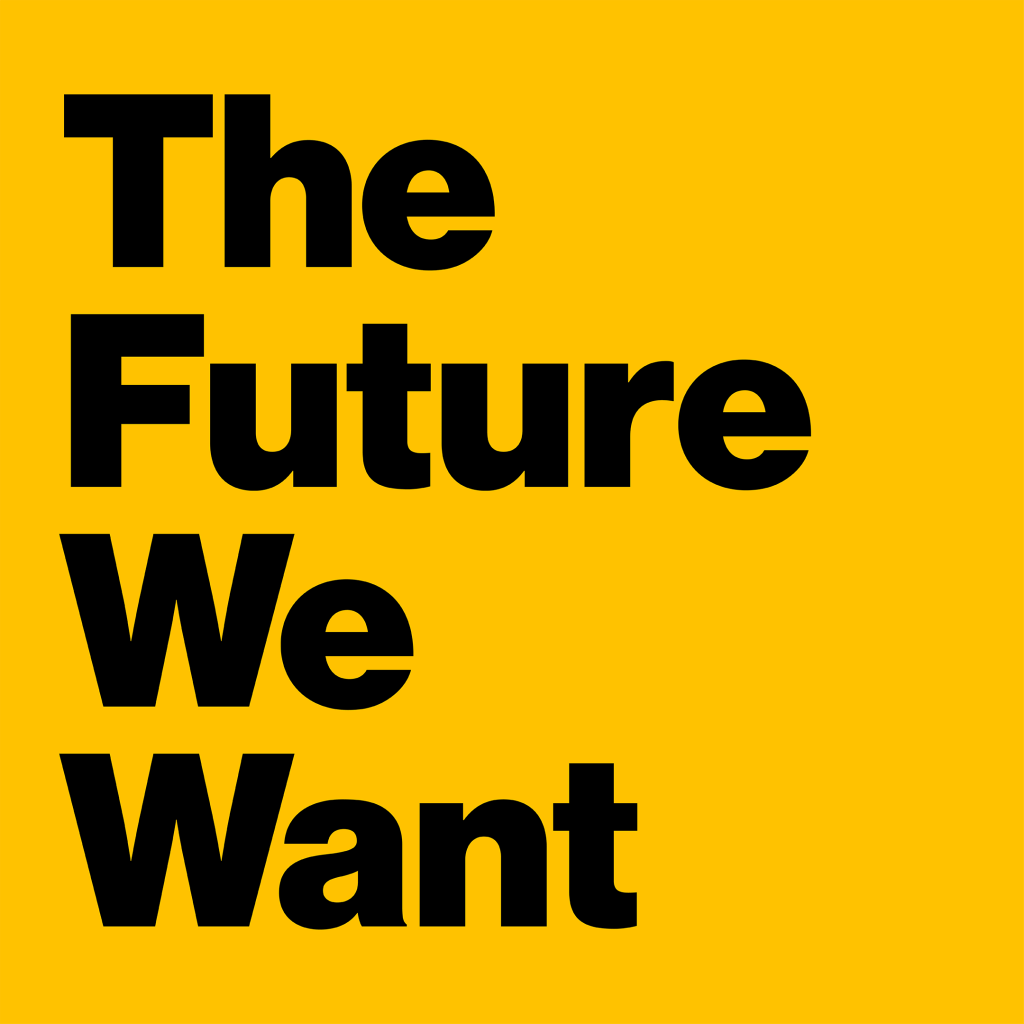Meet Paul Zannelli

Leading Teams with Empathy, Curiosity, Trust and Fun
On a recent Friday afternoon I sat down (over Zoom) with BBMG’s latest addition, our new Head of Accounts, Paul Zannelli. And over beers – actually soup, it was lunchtime – he shared his personal journey from teen snowboarder to sustainable business champion and how a passion for the outdoors and a deep commitment to living ones values have shaped his career and his way of life.
But before we got into the formal Q&A, I asked him what was the last song he’d been listening to on his headphones.
“A track called ‘Keep the Customer Satisfied’ by Simon and Garfunkel.” Fitting for the guy whose job description includes ensuring all BBMG’s projects and client relationships are smooth sailing.
Before joining BBMG in 2021, Paul spent four and a half years at the sustainability consultancy Salterbaxter where he co-managed the North American office. He holds a Master’s in Sustainability Management from Columbia University, and he previously worked at the boutique strategy and design agency JDK Design for seven years.
But his story starts in the mountains.
What was your personal journey to the intersection of branding and sustainability?
I grew up in a small Pennsylvania town called Delaware Water Gap which is the unofficial halfway point of the Appalachian Trail. I spent countless hours just out in the woods playing with my friends and hiking with my family. Meanwhile at home my parents had a small artisan business making decorative slate engraved plaques. We had this shed on our property that had this industrial size sandblaster in it. So it was just one of those things, like I assumed everyone had access to nature, and I also assumed everyone had, like, a crazy small factory in their family.
When I was in high school, I learned there was a proposal in the 1960s to create a dam on a section of the river that was right near Delaware Water Gap. It never went through, but it occurred to me that wow, we shouldn’t take this for granted. And I felt really lucky and grateful to have [the Appalachian Trail] as my backyard. It helped me understand that there are things that need to be protected. And it’s our shared responsibility to do that. Government, community, and business, on some level.
In college I decided to focus on environmental science because I figured, okay, I’ll do something in the outdoor space. I’m not sure exactly what that is, but it’ll lead me somewhere. But at the same time, I always had this desire to be involved in business and marketing.
Eventually they came together when I was working at JDK with Patagonia. Their Director of Philosophy, Vincent Stanley, was telling us a story about how in the early days of organic cotton production within the US, they were sourcing cotton from a supplier who came back with a very attractive price. And they went back to him and basically said, “Look, we want to make sure you take care of your company, the people who work for you, the land, everyone that’s involved and everything that’s involved in this, and in order to do that, we want you to charge us a fair price.” They were essentially haggling to be charged a higher price! And it was like, wow, that’s really amazing that they really care that much that it’s not just on the surface, not just a web page, not just a marketing thing. It’s actually part of their business. And, to me, that was just an aha moment.
What person most shaped who you are in the world and tell us who that person is?
Well, it’s two people: my parents. Instilling fundamental values in me, like the love for the outdoors and for community. They helped foster the entrepreneurial spirit in me and gave me the confidence to try new things, even to put myself out there as a teenager to try to create and sell things.
Was there anything from your parents that you took in as a mantra that you are thinking about, particularly right now in life?
The idea of how you do anything is how you do everything. Doing things with care. Doing things with desired outcomes in mind. Knowing that something is going to be a reflection of you and your effort.
I’ve been trying to coach my son with this little mantra of, I’m learning. I’m trying. I’m going to do it. He’s started to repeat that and it’s definitely caught on, whether it’s riding a scooter or starting to read, which is really exciting. Just trying to be a coach but also a guiding figure without being too much of an authority figure.
In a professional setting at work it’s similar. Trying to understand where everyone is coming from, where the clients are coming from, or the team is coming from, and helping to see and to really understand and then to guide in a meaningful way that’s actually helpful.
Tell us about one of your first gigs at Burton snowboards. What brought you to Burton? What did you do there? What did you learn about culture and about leadership being inside a brand like Burton?
It was really a dream for me to work there. In high school I wanted to be a pro snowboarder. At one point I was competing, but after a while I realized, okay, that’s not going to happen. But I got a tour of the Burton factory and offices and I was like, oh man, this place is the real deal. It’s not just making boards, there’s a whole culture here and there’s a future here. I have to figure out a way to work there.
My sophomore year of college in Vermont, I had been just knocking on doors there, and I think I was wearing a tie, which was probably not a great move in hindsight, but I didn’t know any better. I eventually got an interview and an internship in the HR department. Once I graduated, there was a job that opened up. I worked with resorts throughout North America helping the instruction staff with a methodology for teaching snowboarding and helping the people that were developing the products at Burton to make them more learning specific, more beginner friendly.
The Burton company culture was pretty legendary. People there at the company definitely lived it. You could skate on your lunch break. Just a collection of people having a good time doing great work, working really hard, but everyone’s very like minded in the goal of making snowboards and making a culture that everyone can participate in.
The other piece of it that was really cool was the Chill program, the nonprofit arm. I was involved in that a little bit and helped mentor some kids. So seeing that the company was not only doing well but also giving back was really important and inspiring to me.
Along the journey from your parents’ business, through Burton, JDK, Salterbaxter, and now BBMG, what have you learned about being in relationship, and what makes a great relationship?
I think it comes down to a few things for me:
Empathy is a big part of it. Really trying to understand where others are coming from, what their world is really like.
Curiosity. I think I’m always interested in learning something new – probably sometimes too interested – and I sometimes do a deep dive on fun things like, why the North American Wild Turkey is a great success story, and then put my wife to sleep telling her about it. So I think there’s a limit to the curiosity part I have to be careful around sometimes.
Trust. Having faith in others that there are things that are outside of my control that I need to accept. For important work to happen there’s a lot of synchronized effort in that. You have to trust that others are going to do their part. And often they do even more! Especially in the creative realm. It’s that magical element that excites me that I don’t have inside of me to bring something to life like that. I really appreciate that as something that’s always just fascinated me.
And then I think outside of that there’s also fun. Hard work can be fun, should be positive, and then working with positive people to help further some kind of common goal or mission.
From your own backyard on the Delaware Water Gap, to the heart of mission driven branding, to the echelons of environmental studies, what brings you here to our team at BBMG?
The Regenerative Brands philosophy and the way that BBMG works. I think BBMG really has the potential to bring about change of a higher order that just echoes through the halls of an organization – real transformative change. And I want to be part of that movement, this purpose economy, and helping brands find their way.
What does building Regenerative Brands mean to you?
I think it means acknowledging and accepting responsibility for the business and the impacts that it has. I think it definitely means leaving things in a better position than you found them. I think practically it also means thinking about the broad group of stakeholders within business, the communities where they operate, the relationships that they have.
But also, with that, thinking deeply, and designing solutions and lasting opportunities that can help bring about positive change, and then doing it again and again, because it doesn’t stop.


